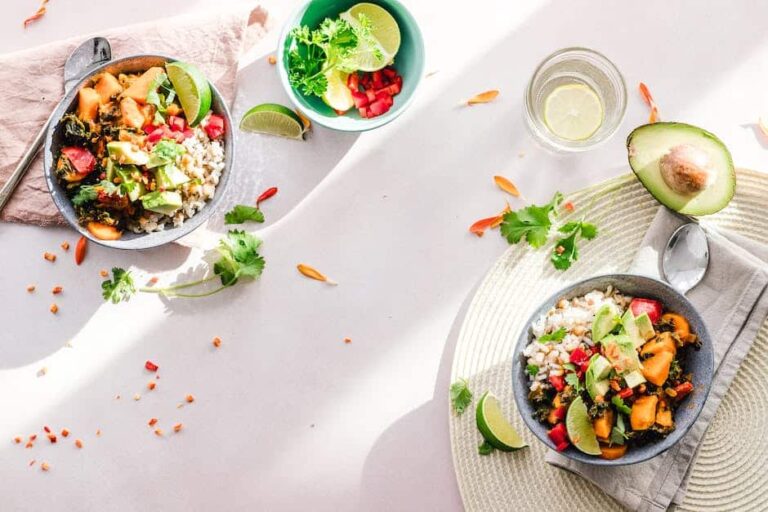Pakistani cuisine, a vibrant tapestry of flavors and ingredients, is more than just a feast for the senses; it is deeply rooted in tradition, culture, and nutritional wisdom. As we explore the various elements that make up this rich culinary heritage, we uncover a wealth of nutritional secrets that can offer numerous health benefits. From spices and herbs to cooking methods and food pairings, let’s delve into the nourishing traditions of Pakistani cuisine.
The Foundation of Flavor: Spices and Herbs
At the heart of Pakistani cooking lies an array of spices that not only enhance flavor but also pack a nutritional punch. Common spices like turmeric, cumin, coriander, and fenugreek have been celebrated for their health benefits for centuries.
Turmeric
Known for its vibrant yellow color, turmeric contains curcumin, a powerful anti-inflammatory and antioxidant compound. This spice is often used in curries, lentil dishes, and rice preparations. Regular consumption of turmeric can help combat chronic inflammation, support brain health, and improve digestion.
Cumin
Cumin seeds are rich in iron, aiding in the prevention of anemia. They also possess digestive properties, making them a common ingredient in many traditional Pakistani dishes. Cumin can help soothe the stomach, alleviate bloating, and enhance nutrient absorption.
Fenugreek
Fenugreek leaves and seeds are often used in cooking and are known for their ability to help regulate blood sugar levels. This makes them particularly beneficial for those with diabetes. The seeds are also high in fiber, which aids digestion and promotes a healthy gut.
Legumes: The Protein Powerhouses
Legumes such as lentils, chickpeas, and kidney beans are staples in Pakistani cuisine. These nutrient-dense foods are an excellent source of plant-based protein, fiber, and essential vitamins and minerals.
Lentils
Lentils are a dietary staple in Pakistan, often found in dishes like daal. Rich in protein and iron, they provide essential nutrients for maintaining energy levels and supporting muscle health. Additionally, the high fiber content in lentils promotes healthy digestion and helps regulate blood sugar levels.
Chickpeas
Chickpeas are not only versatile but also packed with protein, fiber, and healthy fats. Dishes like chana masala highlight the nutty flavor of chickpeas while providing a satisfying and nutritious meal. The fiber in chickpeas aids in weight management and helps maintain a healthy gut microbiome.
Grains: Whole and Wholesome
The grains used in Pakistani cuisine, particularly rice and whole wheat, are integral to the diet and offer a range of health benefits.
Basmati Rice
Basmati rice, a fragrant long-grain rice, is a staple in many Pakistani households. It is lower in glycemic index compared to other rice varieties, making it a better option for blood sugar management. Additionally, basmati rice provides essential carbohydrates, offering a steady source of energy.
Whole Wheat
Whole wheat is often used in the form of roti or chapati. Whole grains are rich in fiber, vitamins, and minerals. They aid in digestion, reduce the risk of heart disease, and help maintain a healthy weight. The fiber in whole wheat can also help keep you feeling full, reducing the likelihood of overeating.
Healthy Fats: Nuts and Seeds
Pakistani cuisine also incorporates healthy fats through the use of nuts and seeds. Almonds, walnuts, and sesame seeds are commonly used in various dishes, providing essential fatty acids, protein, and a range of vitamins.
Almonds
Almonds are rich in vitamin E, magnesium, and antioxidants. They are known for their heart-healthy properties and can help lower bad cholesterol levels. Adding almonds to your diet can promote healthy skin and boost brain function.
Sesame Seeds
Sesame seeds are another nutritional powerhouse. High in calcium and magnesium, they support bone health. Sesame oil is often used in cooking, providing a flavorful alternative to other cooking oils while delivering heart-healthy monounsaturated fats.
Fermented Foods: A Gut Health Boost
Fermentation is a common practice in Pakistani cuisine, particularly in the form of yogurt and pickles. These foods are rich in probiotics, which promote gut health and boost the immune system.
Yogurt
Yogurt, often served as raita, is a staple accompaniment to many meals. It is an excellent source of probiotics, calcium, and protein. The probiotics in yogurt support digestive health, while the calcium strengthens bones and teeth.
Pickles
Traditional Pakistani pickles, often made with a variety of vegetables and spices, are not just flavorful condiments but also offer probiotic benefits. They can aid in digestion and help maintain a balanced gut microbiome.
Conclusion: A Nourishing Legacy
Pakistani cuisine is a treasure trove of nutritional wisdom, combining traditional cooking methods with an array of health-promoting ingredients. By embracing the flavors and techniques that have been passed down through generations, we can nourish our bodies and foster a deeper connection to our culinary heritage.
Incorporating the vibrant spices, legumes, whole grains, healthy fats, and fermented foods typical of Pakistani cuisine can lead to a balanced and healthful diet. As we savor each dish, we not only celebrate the rich cultural tapestry of Pakistan but also the nourishing traditions that can enhance our well-being. Whether you’re enjoying a hearty bowl of daal or savoring the fragrant spices of a biryani, remember that every bite carries the wisdom of generations past, inviting you to experience the delicious journey of nourishment and health.

